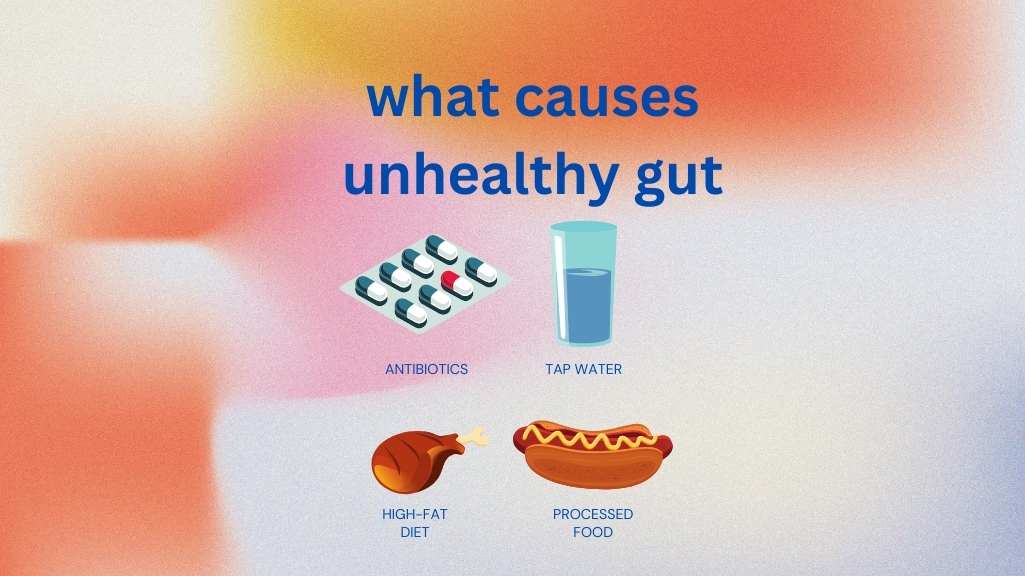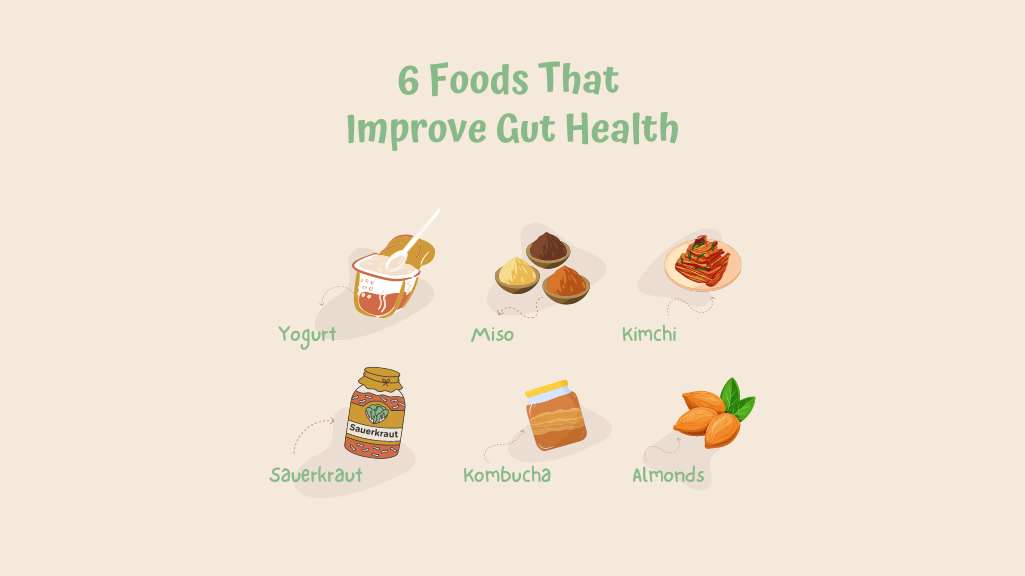Introduction
Gut health has become a slogan in recent years, but it’s more than just a fashion it’s a critical aspect of overall health. With the gut housing trillions of bacteria that play vital roles in taking in, immunity, and even mental health, holding a healthy gut is essential for a healthy life. As study on the gut metagenes advances, understanding how to improve gut health has become more important than ever.
Table of Contents
Major Problems/Issues
Understanding the Digestive System
The gut metagenes is composed of a diverse array of bacteria, such as bacteria, viruses, fungus, and other microbes. These little tiny creatures perform the following significant functions including:
- Digesting: Breaking up food and soaking in nutrients.
- Protection: Safeguarding against pathogenic infections.
- Mental Well-being: Emitting neurotransmitters that can influence mood and brain activities.
Therefore, for these purposes to operate at their best levels, it is important to have equilibrium within one’s gut microbiome.

Common Gastrointestinal Disorders
There are many elements that may disrupt the balance of the gut microorganisms leading to different disorders. Examples of common gastrointestinal problems include;
- Unhealthy gut: This results from an unbalanced gut flora which is mainly caused by poor food habits, use of antibiotics or stressful way of life.
- Irritable Bowel Syndrome (IBS): A long-term state characterized by pain in the stomach and bloating often with disordered bowel movements.
- Inflammatory Bowel Disease (IBD): This encompasses a number of incendiary conditions like Crohn’s disease or ulcerative colitis.
- Leaky Gut Syndrome: The lining develops bigger pores letting toxic substances and germs enter into bloodstream.
Factors Influencing Gut Health
Several things can affect our guts such as;
- Poor Diet: Ingesting more highly processed foods with high sugars content along with unhealthy fats could lead to bad effects on colon bacteria which foster human body health status negatively.
- Use of Antibiotics: While they are paramount for treating bacterial infections but sometimes, they also get rid of useful intestines flora.
- Stress Levels: Long term stress can change composition and function of gut flora.
- Lifestyle Choices: Lack of exercise; poor sleeping patterns; smoking travail also interfere with normal functioning gut system itself.
Gut health: the latest research and information
Connections Of Gut to Brain
New results are increasingly emphasizing the important connection between gut health and mental health, which is called the gut-brain pivot. Studies show that there are gut germs that could produce electrically excitable such as dopamine and dopamine which can influence mood or mental function. This means that maintaining a good digestive system would help in supervising diseases like anxiety, depression as well as some neurodegenerative disease.
Microbiome and Personalized Nutrition
Technological advancements have given rise to personalized nutrition through microbiome analysis at individual levels. Examples of such companies include Biome and biome which offer screening kits for gut bacteria leading to personal diet recommendations on how to improve Gut Health. The customized approach acknowledges that any person’s gut microbiota reacts differently to various kinds of edible products and nutrients since it is distinct.
Postbiotics
Although probiotics and prebiotics have long been recognized for their benefits on the gut, postbiotics are currently gaining popularity. These substances include short-chain fatty acids, peptides, enzymes etc. which are produced by probiotic bacteria themselves (Holmgren et al., 2013). Such compounds have been shown to have some health advantages including anti-inflammatory properties and improved barrier functions of the guts.
Microbiome And Immune Response
A recent study published in Nature highlighted new evidence demonstrating how the gut microbiome modulates immune response in human beings. They found out that certain types of bacteria present within ones’ guts can aid in increasing immunity thus making vaccines more effective against infections (Wu et al., 2012). Consequently, from this work there would be an opportunity for further exploration on ways of enhancing vaccine efficacy through improved management of our gastrointestinal tract well-being.
Dietary Diversity and Microbiota
The American Gut Project conducted a comprehensive survey showing that individuals who had diverse diets specifically composed of several plant-based foods had healthier and more diverse gut microbiomes. The study exposed that diet with greater diversity was related with reduced inflammation and lesser risks of some chronic ailments like heart illness and diabetes.
Feculent Microbiota Transplantation (FMT)
It is a new treatment that is being advanced using fecal material from healthy individuals to replace the unhealthy one in the patients’ guts. It has been used successfully in treating diseases such as Clostridium difficile infection (CDI) and its potential is currently being studied in other conditions related to the gut including IBS and IBD. Present clinical trials are investigating broader applications of this technology as well as long-term property.
The Property of Antibiotics on Gut Health
Continued research continues to delve into the lasting property of antibiotics on gut health. A report published in Cell Host & Microbe noted that even short-term courses of antibiotic therapy can lead to prolonged changes within the gene pool of an individual’s digestive tract [16]. This can make affected people vulnerable to illnesses besides increasing their chances for chronic diseases further highlighting the significance of proper prescription practices when it comes to these drugs, while there may also be a need for probiotic supplementation after taking antibiotics.

The Role of Gut Microbiome in Weight Management
Recent studies have reported an association between composition of gut microbiome and weight management. Consequently, specific microbes were identified by researchers published in Nature Medicine which caused either loss or gain of weight respectively [17]. Based upon these insights, novel drugs could target gut microbiota as an approach to treat obesity along with metabolic disorders.
Impact or Importance
Health Implications
The general health of an individual relies on the existence of a good gut. For example, the gut microbiota is known to influence various body functions and systems:
- Digestive Health: A balanced gut microbiome aids digestion and absorption of nutrients hence preventing complications such as constipation, diarrhea, and bloating.
- Immune Function: The gut is home to about 70% of the immune system hence vital for defense against infections as well as diseases.
- Mental Health: Microbial imbalances in the human digestive system are associated with mental health issues through what is known as “gut-brain” axis which include depression and anxiety amongst others.
- Metabolism: There exists a link between certain types of bacteria in the gut flora and metabolism/weight thus contributing to obesity and other metabolic disorders.
Societal and Economic Impact
Poor gut health can have significant societal and economic implications:
- Healthcare Costs: These conditions may result in high healthcare costs since they include IBS or IBD treatment that can be expensive if taken carelessly.
- Productivity: It might cause absenteeism at work or school due to stomach problems leading to low performance.
- Quality of Life: It creates discomforts, stress, lack of peace thus limiting one’s ability to engage in daily activities.
Strategies or Solutions
Dietary Changes
One area that has been shown to absolutely influence gut health is diet. Here are some dietary changes that can advance a healthy gut:

Increase Fiber Intake
Fiber supports good bacteria while also facilitating bowel movements. Some sources include:
- Product such as Apples, pears, berries,
- Greens like Broccoli, carrots, Brussels sprouts,
- Whole Grains along with Oats, brown rice, quinoa,
- Legumes such as Beans, lentils chickpeas among others.
Eat Alcoholic Foods
Probiotics found in fermented foods enhance enteric well-being. These foods include between others:
- Yogurt: Go for plain and not added sugar yogurt with live civilizations.
- Kefir: This is an alcoholic milk drink rich in probiotics.
- Sauerkraut: A type of cabbage that has undergone fermentation using lactic acid bacteria.
- Kimchi: Spicy Korean vegetable dish that is alcoholic.
- Kombucha: A tea drink that goes through ferment process.
Limit Processed Foods and Sugar
The balance of the gut microbiota can be destroyed by processed foods and high sugar. By taking less of these, one can maintain a healthy gut microbiome.
Herbal Treatments
Several herbs have been found to support gut health:
- Peppermint: Commonly used for IBS since it relieves gastrointestinal problems,
- Ginger: Has anti-inflammatory characteristics and helps digestion,
- Turmeric: Its active mixture curcumin has anti-inflammatory and antioxidant property,
- Chamomile: Helps lower inflammation and help relaxation hence it is good for the gut’s health.
Allopathic Treatments
For more severe gut health issues, allopathic treatments may be necessary:
- Vaccines: for germs infections should be administered carefully to prevent killing beneficial bacteria while fighting bad ones,
- Probiotics: are supplements that contain beneficial bacteria which help restore the normal equalize within the guts,
- Anti-inflammatory Drugs: are given when conditions like IBD cause redness,
- Laxatives: for constipation or intestinal motility inhibitors (for diarrhea).
Lifestyle Modifications
Lifestyle changes can also have a significant impact on gut health:
Manage Stress
High levels of stress affect the intestinal system negatively. Ways of managing stress involve:
- Meditation and mindfulness practices.
- Regular physical activity.
- Adequate sleep.
- Yoga exercises and deep breathing techniques though meditation could work as well if you prefer it.

Exercise Regularly
Physical exercise increases diversity in your gut flora consequently promoting digestive wellness. As such, strive to engage in at least 150 minutes of moderate exercise every week.
Get Enough Sleep
Sleep is vital in ensure overall health including having a healthy gut. It is proposed that one should aim for between 7 and 9 hours of quality sleep every night.

Case Studies or Real-life Examples
Case Study 1: Dietary Changes
- Background: A lady named Jane, who was thirty-five years old, had constipation and chronic bloating.
- Intervention: She started incorporating more fiber-rich foods as well as fermented ones in her food.
- Outcome: Within a few weeks when she noticed that her condition has greatly improved. Her bloating reduced drastically, and her bowel movements became better and regularized.
Case Study 2: Probiotics Supplementation
- History: John is a man of forty who has been suffering from IBS.
- Interference: The doctor advised John to get probiotics containing Lactobacillus and Bifidobacterium strains.
- Outcome: He endured less from IBS symptoms such as abdominal pain reduced and bowel regularity was improved after three months of steady use.
Case Study 3: Stress Management
- Background: Sarah is 28 years old with frequent digestive issues that are made worse by stress periods
- Intervention: To control her stress levels Sarah started doing yoga as well as practicing mindfulness meditation.
- Outcome: Over time, all of Sarah’s digestive symptoms have gone down remarkably, she feels more at ease and balanced generally.
Case Study 4: Combination Approach
- Background: Mike is a fifty-year-old gentleman having IBD history with flare-ups problems.
- Intervention: This included eating a balanced diet, taking probiotic supplements regularly along with exercising daily plus using stress management techniques for Mike.
- Outcome: Mike was able to experience fewer flare-ups due to the overall health improvement which this enabled him manage his condition properly too.
Conclusion
The significance of good gut health cannot be underestimated since it affects digestion, autoimmune system, metabolism etc. By understanding the main causes and employing effective strategies you can take charge of your gut health thus improving your quality life.
Key Takeaways
- A healthy balance of gut germs is important for good health.
- Diet plays an important role in keeping the health of the gut — go for fiber-rich and fermented foods.
- To support a healthy gut, you have to manage stress, be physically active and sleep enough.
- In case of more severe gut conditions, consider herbal remedies as well as allopathic ones.
- These strategies are effective from real-life examples.
- Stay abreast with the newest studies to optimize your approach towards gut health.
Call to Action
Start working on your gut health today. Assess your diet, introduce healthy lifestyle changes, consult a nurse if necessary. You will thank her!
Improving the digestive system is a continuous process but with correct information and techniques; one can live a healthier happier life than before.
FAQs
1. What can I eat to improve my digestive wellness?
Improve the health of your intestines by absorbing various food goods that are high in fiber such as fruits, greens, whole seeds or beans. You will also be recommended to use yogurt, kefir, coleslaw kimchi and kombucha and any other alcoholic foods which advance a healthy gut microbial society. It is because they control both prebiotics and probiotics which improve the good bacteria increase in the stomach.
2. How does stress affect gut health?
Gut microbiome composition and function could be changed due to stress. This happens because chronic stress can cause increased intestinal permeability inflammation and IBS symptoms related to digestion. When people control their stress levels through practices like meditation, yoga or regular exercise routines it helps them maintain their gut health.
3. Do probiotics work for improving gut health?
Yes, probiotics work for improving gut health since they carry beneficial microorganisms that can restore an imbalanced state of our digestive system especially after antibiotic treatment has been done or during digestion disorders in general hence making it hard for absorption. There are various supplement brands where you can get these probiotics from while there are also those found in yoghurt kefir and kimchi.
4. Which lifestyle changes support optimal gut health?
Some of the things one should do as a way to promote their gastrointestinal well-being include having balanced nutrition plans; managing stresses; doing exercises on a regular basis; enough sleep among others. Reducing processed foods intake as well as sugar amounts plus keeping oneself hydrated is important to look after a nice belly too.
5. What indicates good bowel health?
A person who has healthy intestines will have normal bowel movements without bloating constipation or any other digestive problems together with being generally fit physically and mentally which can be pointed out by clear skin free from acne signs strong immunity system and so on. If you constantly suffer from digestive complications or related symptoms, it is advisable to consult a medical expert.

